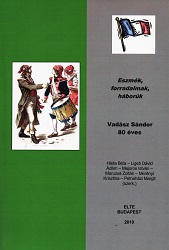
We kindly inform you that, as long as the subject affiliation of our 300.000+ articles is in progress, you might get unsufficient or no results on your third level or second level search. In this case, please broaden your search criteria.


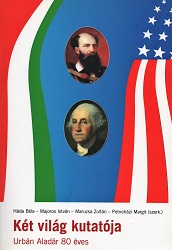



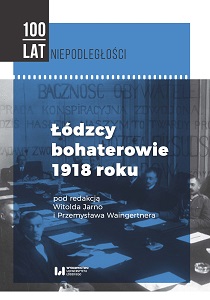



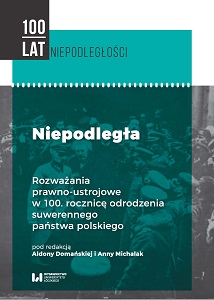
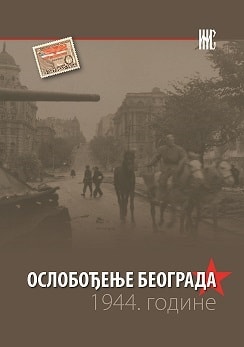
Milan Gavrilović, the leader of the Union of Agriculturists, of anti-German and pro-British persuasion, became the first ambassador of the Kingdom of Yugoslavia to Moscow as diplomatic relations were taken up in June 1940. With a brief recess from early May to mid-July 1941, he remained on that post until the end of 1941. During that time, and after it too, he conceived the most unfavourable opinion about the possible and expected influence of the Soviet Union on the Balkans and in Yugoslavia. Apart from ideological disagreement, the belief that Balkan should be left over to the Balkan peoples contributed to his opinion that the independence of these peoples must be defended against the domination of any great power, as well as against their mutual confrontations. Being sure that this was the true interest of the Balkan states, he espoused the creation of a Balkan federation and he defended his views even at the cost of parting ways with political and personal friends. During the war he was considered a „Greater-Serb“ and „anti-Soviet“.
More...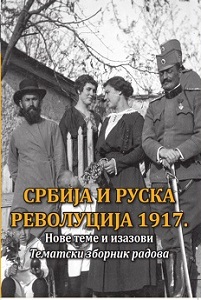
On the basis of long-term researches and detailed analysis of the Soviet and Yugoslav historiography, the author considers Russian revolutionary heritage of the second half of the 19th century and its influence on Russia and Serbia, concluding that the revolution in Russia in October 1917 should not be considered as a separate event. It is necessary to take into account the revolutionary ideas, modified and developed by many generations of Russian revolutionary intelligentsia. After all, these revolutionary ideas were embodied in the theory, which gave birth to the general model of the 20th century revolutions not only in Russia, but later in Yugoslavia as well.
More...
The article analyses the Serbian-Russian official relations on the eve and immediately after the February Revolution of 1917 on the basis of studying archival data and taking into account the Serbian and Russian historiography. Particular attention is paid to the attitude of Serbian official representatives in Russia to Tsar Nicholas II, on the eve and just after his overthrow. The aim of the article was to study the attitude of the Serbian elite and the Serbian state towards the February revolution in Russia in 1917.
More...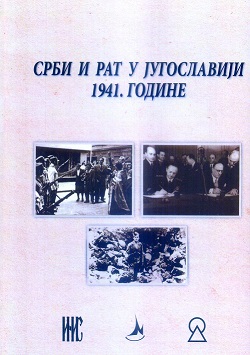
Vladimir Velmar-Janković was one of the most striking persons of Serbian and Yugoslav political right-wing, an ideologist in whose political thought many stands of radical right-wing ideology could be seen, but with many original elements. Although politically active during the whole interwar period, Velmar-Janković was left short of political and social functions of greater value, which, combined with a row of personal conflicts, created strong frustration that will influence his later entering in collaboration. His ideology in 1918–1944 was based on critic of cultural politic of Kingdom of Yugoslavia, critic of foreign cultural and civilization influences and mythologized vision of Serbian history, while his text were full of xenophobic and racial elements. Velmar-Janković’s role in collaboration government during the WWII was mostly established in most recent researches of Serbian historiography; however, the root of his extraordinary influence on creation of cultural politics of Nedić’s government still hasn’t been determined. Many indirect evidences points to him being an associate of Nazi security organizations, but it is still not sure whether he was a denunciator and Gestapo’s associate or not. It is absolutely certain that Velmar-Janković was a person of the greatest influence in culture, education and science during the occupation, and that he misused this power for personal promotion and fights with his old enemies. His life in emigration, after spectacular escape from the country in conditions that are still unknown, is still an enigma for Serbian historiography.
More...
У раду се сагледавају антифашистички ставови дела руске емиграције у Југославији уочи Другог светског рата. Истраживање се базира на анализи чланака Руског архива, часописа који је на српском језику издавао Научни институт београдског одељења Земгора. У часопису су били штампани бројни радови који су аргументовано наговештавали очигледну претњу СССР-у од нацистичке Немачке и Јапана. Званични представник београдског одељења Земгора је био Ф. Е. Махин. Подједнако важну улогу у тој организацији имао је и В. И. Лебедев, чији животни пут није био ништа мање противречан и неизвестан од живота његовог колеге и партијског друга Махина. Обојица у почетком 20. века припадали истој партији – Партији социјалиста - револуционара.
More...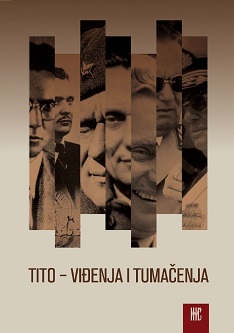
Yugoslav identity and the idea of brotherhood and unity of Yugoslav nations and nationalities were based on patriarchal authority of Josip Broz Tito. According to Boris Buden, the idea of Tito as a father of a family, which was widespread in the period Yugoslav socialism, was a fundamental characteristic of ideology of Titoism. For this reason, Tito’s role in the Yugoslav socialism is often interpreted in a totalitarian context which is characterized by a strong cult of personality and by a transfer of private, familial relations onto broader social relations and the public sphere.
More...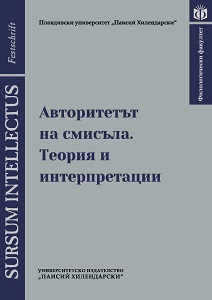
The religious type of melancholy reflects the crisis of human consciousness as regards the sacral. Its first but singular instances can be found in Homer’s Iliad. Dominant throughout Antiquity was the humoral treatment of melancholy as a disease from which both the body and soul suffered. In his treatise Problema XXX Aristotle uses a new semantic emphasis, associating melancholy with genius. The Renaissance vindication of the antique philosophy of Plato and Aristotle was a prerequisite for a debate with the Christian axiology of dolourism and martyrism, which, as early as the XIV century, involved the problem of creative inspiration. In the course of historical evolution, melancholy turned from a diagnosis into an ethos. This process is illustrated in the article through the works of Petrarch, R. Burton и J. A. Komenský.
More...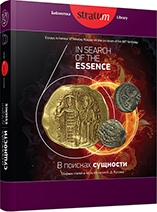
Evolution of the cult of St. Phylotea from Tarnavo is examined, whose relics were moved in the end of 14th century to Curtea de Arges, the old capital of Wallachia. It is paradoxical, yet there is a different story about the Saint’s life in the North Danube area, which has nothing in common with the passional written by Patriarch Euthymius of Tarnovo. Folklore tells that that Phylotea was Bulgarian, born in Tarnovo in the beginning of 13th century. The author suggests a hypothesis that the legendary story of this Saint comes from Tarnovo. He poses a question about the cult of St. Phylotea in Medieval Moldavia, which is not examined.
More...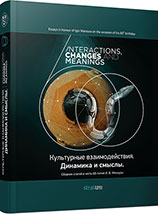
In dem Beitrag wird anhand der einschlägigen Funde dargelegt, daß sich die entscheidenden Innovationen der Metallurgie im 6. und 5. Jahrtausend (der Guß von Kupferobjekten, die Legierung von Metall und der Guß in verlorener Form) weitgehend synchron in einer geographischen Zone zwischen Balutschistan und Balkan vollzogen. Dies wird als das Ergebnis eines raschen Wissenstransfers interpretiert. Anhand frühneuzeitlicher Beispiele werden Aspekte der Spezialisierung und Mobilität von Handwerkern behandelt.
More...